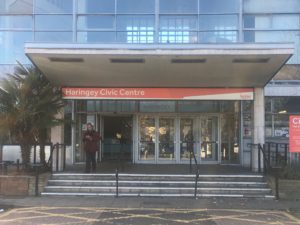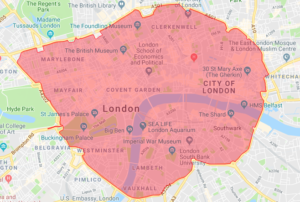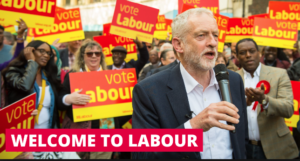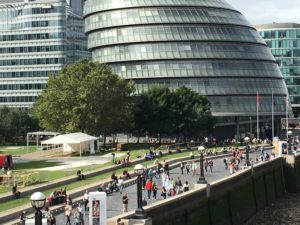The short answer to the headline question is “not very much” in terms of reducing congestion, according to a study conducted for Transport for London (TfL) by financial policy consultants Cambridge Economic Policy Associates (CEPA). Why, then, do TfL and Sadiq Khan want to do it?
At present, private hire vehicles, are, like London taxis, among those exempt from current daily congestion charge of £11.50 (or £10.50 with auto pay) which must be paid on weekdays between 07:00 and 18:00. The recent boom in the number of private hire vehicles licensed has made them prime suspects for the increase in congestion levels in Central London.
TfL says there were nearly 50,000 PHVs licensed ten years ago, with around 120,000 licensed today, of which about 90,000 are actually working. TfL is presently consulting on proposals for changes to the congestion charge, including removing the exemption for PHVs. They argue that “removing the PHV exemption would help to reduce traffic and congestion within the zone”.
And yet the CEPA study forecasts that this beneficial effect would be small. “Traffic would fall slightly,” it concludes. Its broad estimate is that PHV traffic would fall by about 6% per day, bringing about an overall reduction in all motorised traffic in the congestion charge zone of just 1%. However you look at it, that isn’t very much.
The CEPA study formed the basis of inquiries made by Gareth Bacon AM, current leader of the London Assembly Conservative group, at last Thursday Mayor’s Question Time. The Mayor, drawing on TfL’s figures, said that when the PHV exemption was introduced it was expected that about 4,000 PHVs would would enter the zone each day, but that by 2017 the number of these “unique entries” had risen to an average of 18,000 a day during charging hours. This, though, would fall to 10,000 a day if the exemption were removed, the Mayor said, which is line with CERP’s estimate of a fall charging hours unique entries of about 45% (see slides 22 and 26).
However, CEPA study also anticipates that, as Mayor Khan acknowledged, PHV operators in the Central London area, who tend to be the larger firms, will respond to the loss of the exemption by distributing the bookings they receive differently among their drivers, resulting in a reduced number of drivers who’ve entered the charging zone picking up more passengers there than before and therefore spending more time than before on the area’s roads. That’s a big reason why CEPA’s calculation of the reduction in PHV traffic levels (6%) in the congestion charge zone, is much smaller than their calculation of the number of PHVs that would enter it (45%).
TfL concedes that the estimated one per cent reduction in traffic levels overall “appears modest”, but still contends that it would represent “an important step in managing and reducing congestion in Central London”, with consequential improvements in air quality too. But Gareth Bacon argued that any “very minor” reduction in congestion would also add to cumulative TfL policies enacted in the Mayor’s name, including hikes in licensing fees, that “are going to have an absolutely devastating impact on the private hire industry,” which has seen the number of firms licensed by TfL – as distinct from the number of drivers – fall in recent years, with smaller operators in particular disappearing
“Can you see why the private hire industry could be forgiven if it believes that Transport for London is deliberately setting out to destroy it?” Bacon asked. “The only upside that I can see for this is that it will raise an extra 30 million quid that TfL can chuck into the [financial] black hole they’ve got.”
What should the Mayor and TfL do? It should be stressed that CEPA themselves point to uncertain outcomes “in various areas” that their study did not factor in. Bear in mind too that London Assembly Tories, traditional champions of small business, tend not to be big fans of the congestion charge in any form. Even so, it’s hard to get excited about the prospect of a 1% reduction in traffic levels overall, given how acute congestion has become.
Perhaps an extra £30m a year in revenue for TfL is justification enough, but the whole business underlines how fraught the issue of road traffic management in London is, not least politically. Boris Johnson halved London’s congestion charging zone by doing away with its Western Extension, but he also increased the level of the charge. Mayor Khan, never one to offer a hostage to electoral fortune, ruled out any hike in his manifesto. Really serious solutions to traffic congestion and poor air quality in Central London would require measures far more radical than he is likely to propose.
See the Mayor and Gareth Bacon’s PMQ exchanges in the webcast from about 46 minutes in. TfL’s consultation on changes to the congestion charge is open until 28 September.
LONDON AND BREXIT: Will leaving the EU be good or bad for the capital? On London and the illustrious London Society have jointly organised a debate about this crucial question, featuring anti-Brexit campaigner Andrew Adonis, former Boris Johnson adviser Daniel Moylan and others to be announced. Buy your tickets here.












 The comments by Khan that Devenish misrepresented came in answer to questions by Liberal Democrat AM
The comments by Khan that Devenish misrepresented came in answer to questions by Liberal Democrat AM